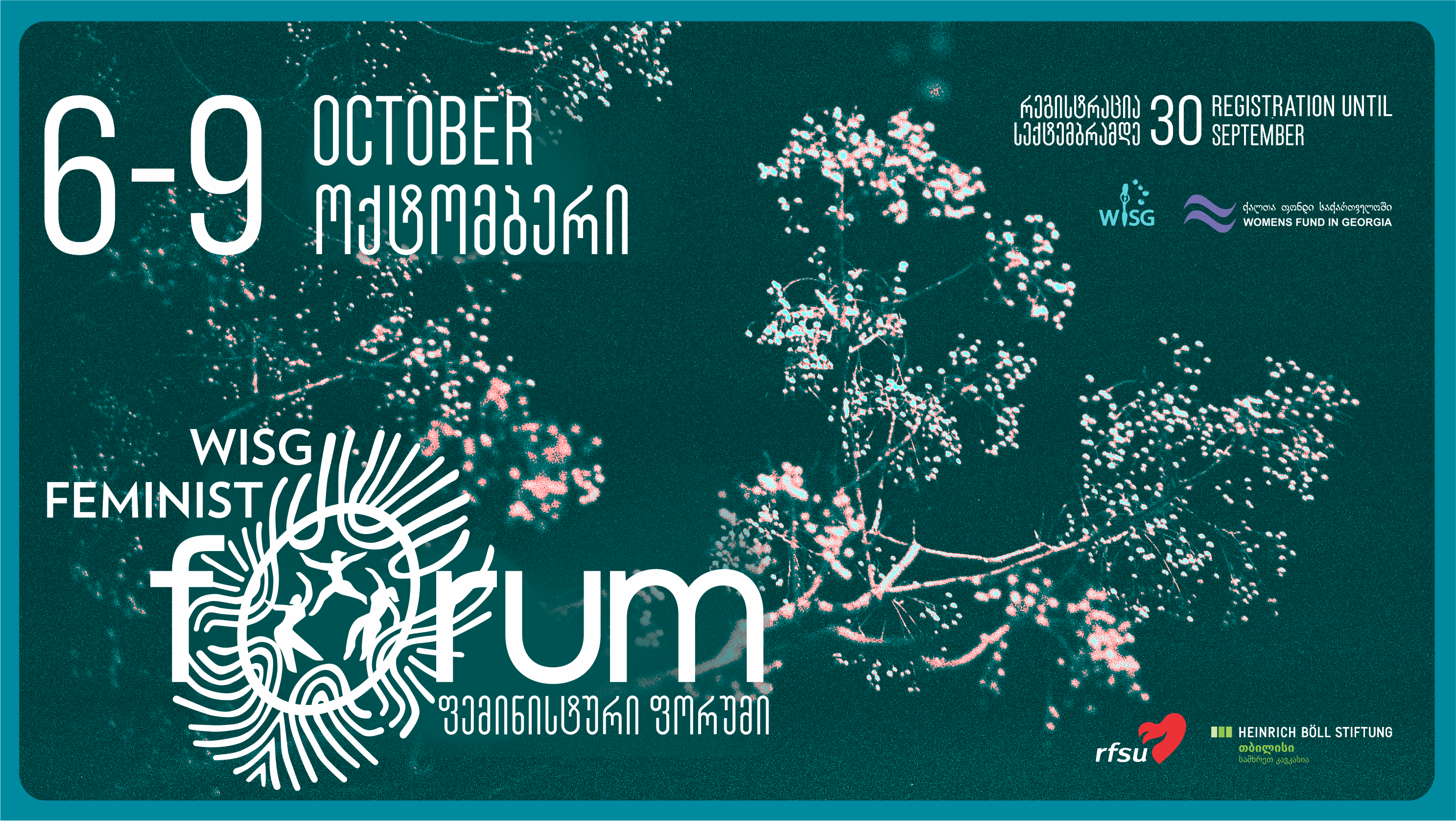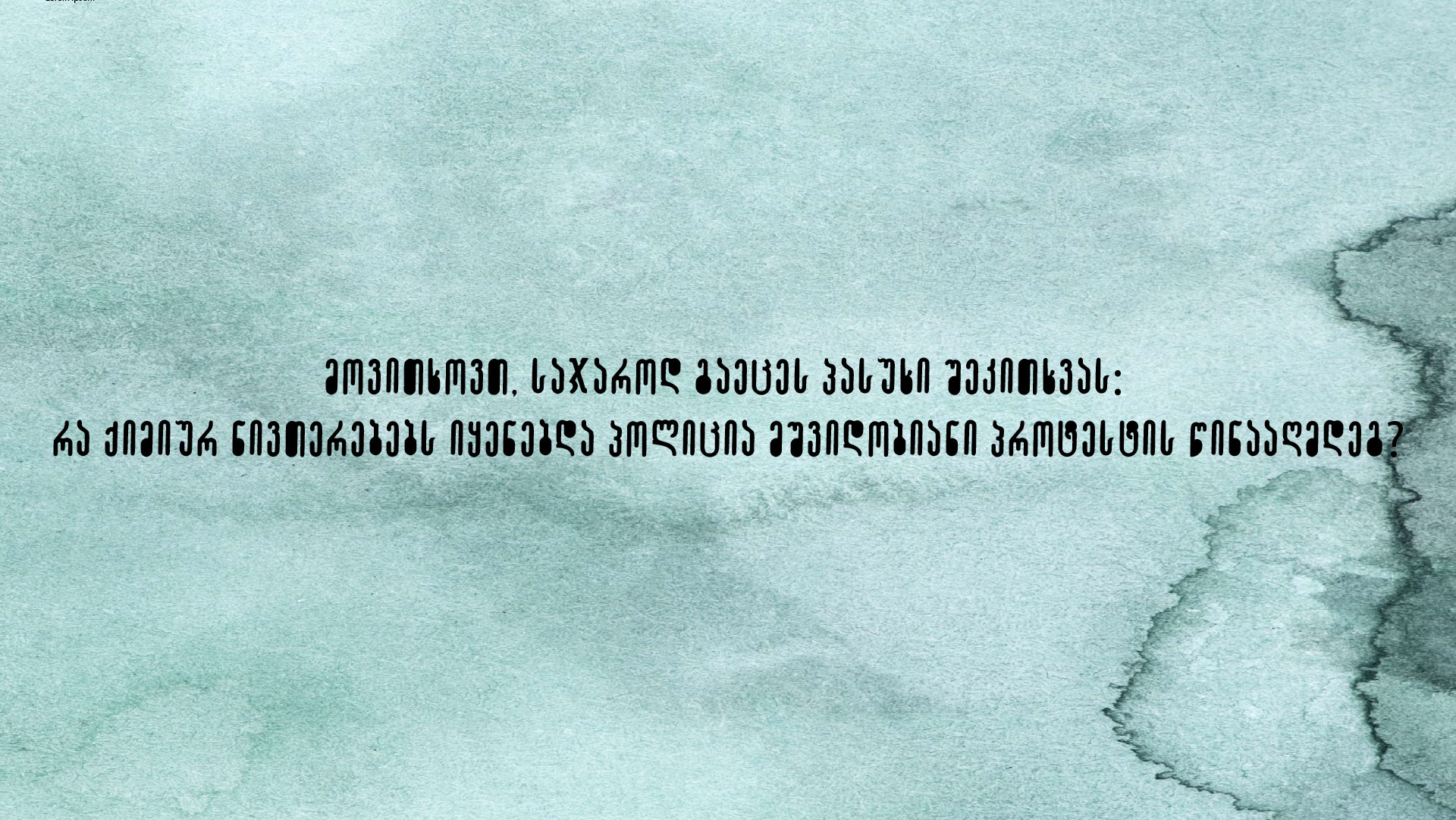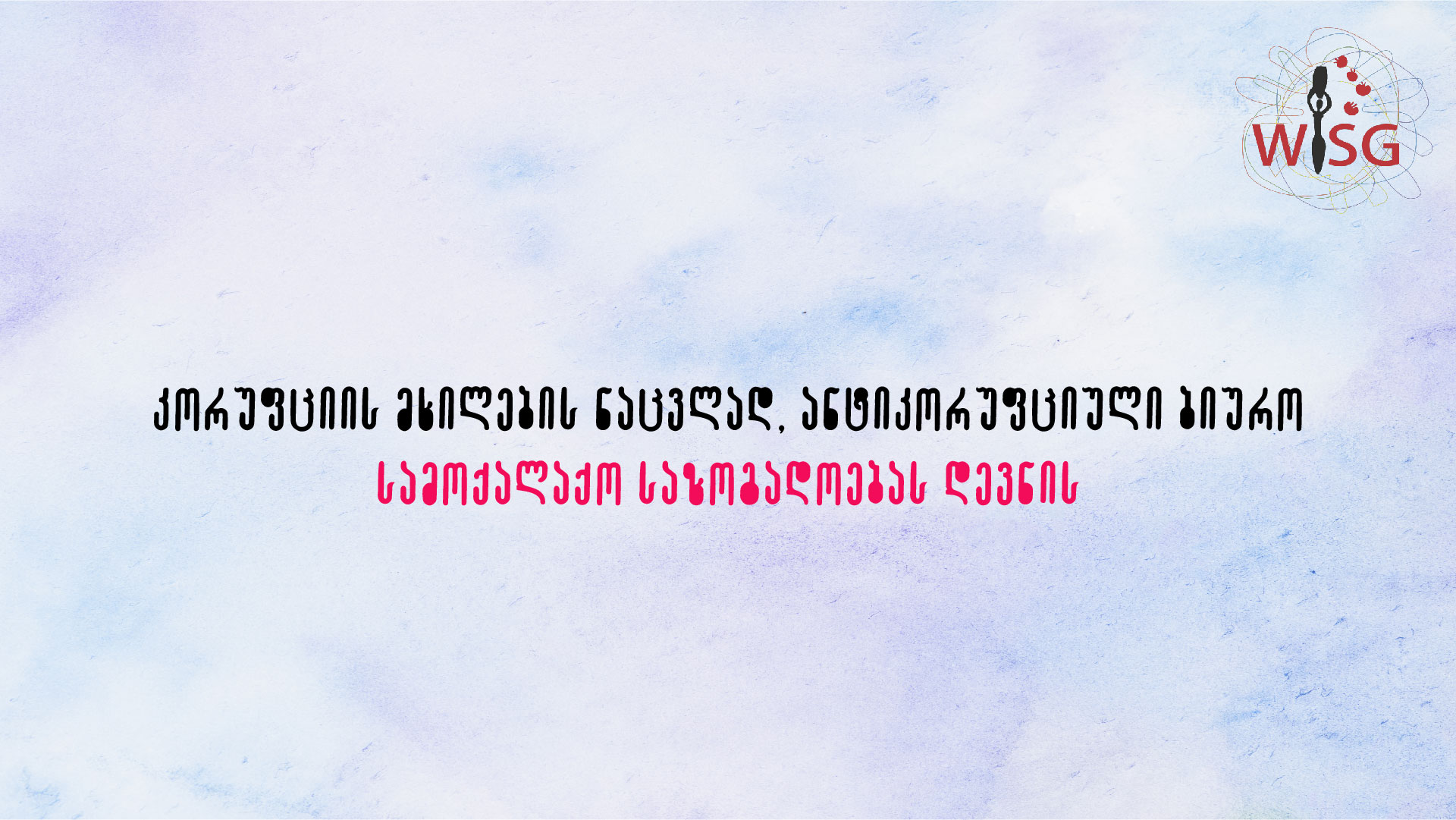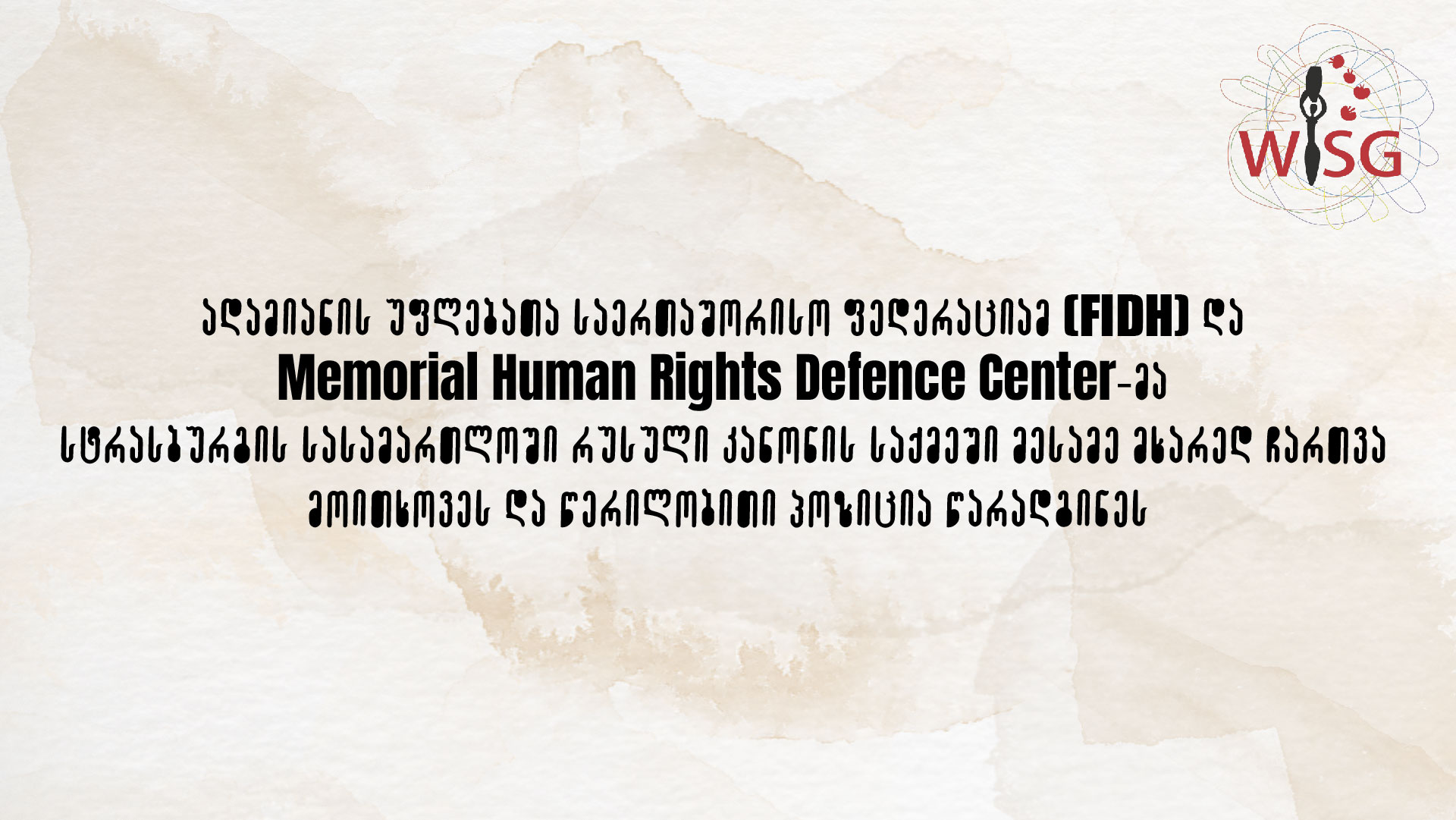Women's Initiatives Supporting Group (WISG) invites you to participate in the Feminist Forum
on October 6-9, 2022, in Tbilisi.
The Feminist Forum is an initiative to create
a safe space and an interdisciplinary network,
which will connect researchers, activists, students, members of community and
arts organizations, formal and informal collectives, for a feminist reflection
on social theory and practice. The goal of the Feminist Forum is to support
intersectional and solidarity-based cooperation through exchange of knowledge,
experience and ideas, and by creating a space for critical thinking and
analysis.
This year, with its content, the Forum caters to
feminist and queer activists and those, who are interested in gender aspects of
social research in culture studies, psychology, urban studies, ecology and
organizational studies.
Detailed
information about the Forum and programme is provided below.
If you wish to
participate in the Forum, please
complete an application form in Georgian or English by September 30, 2022.
Please note that
the form allows you to indicate your choice – whether you plan to attend the
Forum fully or a particular day(s).
We will contact
you with additional information, in stages, by September 30, 2022.
In 2022, the Feminist Forum is organised in cooperation with Women’s Fund in Georgia and with the support of Heinrich Boell Foundation Tbilisi Office - South Caucasus Region.
REGISTRATION for participation in the Forum is open through this form until September 30, 2022.
Feminist Forum Programme
Opening, October 6, 16:00 – 19:00
Topic: Goddesses in Georgian folklore.
Speaker: Khatuna Tavdgiridze
Presentation of the Calendar of Goddesses.
Presenter: Eka Agdgomelashvili
Day 1, October 7, 10:00 – 18:30
Focus of the Day: Gender Aspects of Organizing Care
In addition to oppressing, undervaluing and not appreciating women’s participation in social and political life, patriarchy establishes control even on the areas it designates as "female" under its order. Dominant patriarchal discourse hid away and expelled a memory about specific practices of care defined as female. Capitalist division of labor, from one side, has turned collective care for people and environment into women’s invisible and unpaid work, and, from another, made an opportunity to receive care a privilege and a matter of an economic gain.
In the focus of the first day at the Forum are those practices of care in traditional cultures, which create specific history of women. We believe that collecting and sharing knowledge about these practices, and recognizing their fundamental importance in daily life and politics, as well as analyzing how care work relates to gender, class and race, is crucial for achieving social justice through a transformative, sustainable change.
Presenters will discuss, from a feminist perspective, women’s practices of care, co-participation and organizing, in historic and modern contexts, at individual, community and organizational levels.
Topic: Women’s care and co-participation practices in Georgian mountains.
Speaker: Lela Gaprindashvili
Topic: Presentation of preliminary findings of a study exploring herbal practices of healers in mountainous part of Adjara.
Speakers: Nino Khuroshvili, Maia Darchidze
Topic: Notions of “healing” and “healers” and corresponding practices in Georgia.
Speaker: Tamta Melashvili
Topic: Integration of collective care oriented planning in organizational management.
Presenters: Eka Tsereteli and Nino Kharchilava
Topic: Healing Justice Lineages & Strategies.
Speaker: Cara Page
Day 2, October 8, 10:00 -18:30
Focus of the Day: Queer Feminist Vision of Occupying, Repossessing and Creating Space
Feminist understanding of space goes beyond the concept of physically defined site and locality. This approach of critical re-thinking of space implies creating knowledge about exclusion of different oppressed groups by power systems from social, cultural and political agenda, and its analysis. Exclusion from agenda is what we refer to, from feminist perspective, as limiting space, and which, on its turn, implies taking away an opportunity for self-expression and co-participation. This peculiarity of dominance and oppression conditions specific traumatizing body-related, psycho-emotional and social processes for individuals and groups.
At the second day of the Forum, discussion will focus on the analysis of the above-described relations in urban context specifically: how does oppression manifests itself in urban spaces for women and queers, and what can be a transformative, feminist alternative to the dominant hierarchical order? At the same time, presenters and panelists will discuss activist strategies for occupying space and creating it.
Topic: Presentation of a study. Queer trauma and urban space: bodies, interaction and everyday life.
Speakers: Salome Shiukashvili and Giorgi Kankia. Moderator: Manana Malaghuridze
Topic: Experiences of queer community members and activists in urban environment.
Panelists: Eka Tsereteli, Nino Kharchilava, Sopho Basiladze, Mari Kurtanidze. Moderator: Nukri Tabidze
Topic: How civic groups in Azerbaijan occupy public buildings for community needs.
Speakers: Salam Cinema collective
Topic: Urban space and women.
Panelists: Nano Zazanashvili, Tinatin Khomeliki, Tata Verulashvili. Moderator: Natalia Mchedlishvili
Film Screening: Indianara (Brazil, 2019)
Day 3, October 9, 10:00 – 19:00
Focus of the Day: Healing. Body Justice.
Body, as a bearer of our authentic experience and an instrument for manifesting us as beings, interacts with the environment and with its social, political or ecological components non-stop. This interaction with the environment largely defines our life be that at a personal or interpersonal level, in personal or public space.
Body is one of the targets of patriarchy and capitalism, which, through production of the repressive politics of standardization and limiting, turns it into an object of manipulation and exploitation. In this context, experiences of women and queer, trans and gender non-conforming people, how they perceive their bodies and forms for liberating it, are distinct.
Third day of the Forum we will dedicate to body, and, we will use not only verbal discussions as a medium, but movement technique too – through listening to individual rhythm, we will focus on physical dimension of our being. During the day, we will summarize bodily experiences in activism and will analyze, from the feminist and queer perspective, the systems that discriminate, control and discipline bodies.
Dance workshop: Communication through body movement (preparation and presentation of the choreographic composition)
Trainer: Natia Chikvaidze.
Topic: Body Justice.
Speakers: Milena Abrahamyan, Dafne Erdur.
Topic: Bodies and chronic pain – hiding, fear and healing.
Presenter: Mariam Tchantchaleishvili
REGISTRATION for participation in the Forum is open through this form until September 30, 2022.







